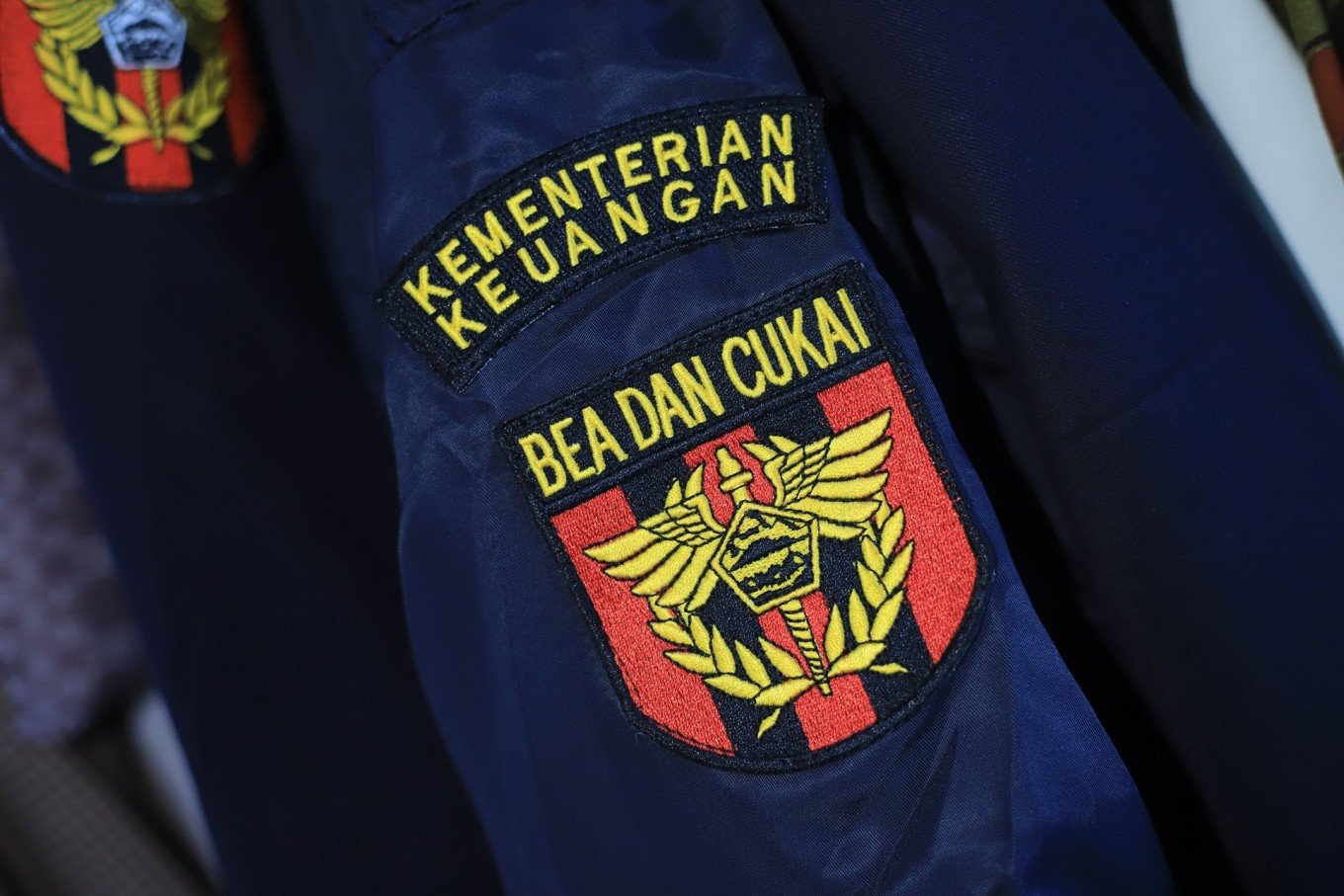News
Prabowo’s appointment of loyalists to tax, customs offices raises alarm
Tenggara Strategics May 27, 2025 A sleeve patch featuring the logo of the Finance Ministry's customs and excise directorate general is seen in this stock photo taken on March 13, 2023. (Shutterstock/Wulandari Wulandari)
A sleeve patch featuring the logo of the Finance Ministry's customs and excise directorate general is seen in this stock photo taken on March 13, 2023. (Shutterstock/Wulandari Wulandari)
President Prabowo Subianto has once again turned to loyalists with military backgrounds to fill key leadership roles in the Finance Ministry’s revenue-generating directorates. His decision to appoint an active military general to head the customs office and an alumnus of military-style Taruna Nusantara (Tarnus) high school to lead the tax office has sparked concerns over the erosion of meritocracy and the growing influence of cronyism in public administration.
Prabowo has named active-duty military officer Lt. Gen. Djaka Budi Utama as the new director general of customs and excise and Tarnus alumnus Bimo Wijayanto as the director general of taxation. With government revenues under strain, Prabowo is banking on the duo to help him realize his ambitious goal of raising total tax and non-tax revenues to 23 percent of gross domestic product (GDP) by 2029.
This target stands in stark contrast to the country’s stagnating tax ratio. In 2024, Indonesia’s tax ratio dropped to 10.08 percent of GDP, down from 10.31 percent in 2023 and 10.4 percent in 2022. These figures lag significantly behind regional peers such as Vietnam (13.5 percent), Thailand (16 percent), and the Philippines (15.6 percent), highlighting structural inefficiencies in Indonesia’s revenue collection system.
Achieving the revenue target is especially daunting given current economic headwinds. Indonesia’s economy grew by just 4.87 percent in the first quarter of 2025, the weakest first-quarter growth since 2022, despite a seasonal boost in consumer spending during Ramadan and Idul Fitri. The World Bank and the International Monetary Fund have both revised their 2025 growth projections downward, from 5.1 percent to 4.7 percent.
The manufacturing sector is also under pressure. Indonesia’s manufacturing Purchasing Managers’ Index (PMI) fell to 46.7 in April, indicating contraction, and lagging far behind countries like India, whose PMI stood at 58.4. Some observers have linked the slowdown to global economic instability and renewed trade tensions under United States President Donald Trump.
These factors are taking a toll on tax revenues. In the first two months of 2025, tax collection amounted to only Rp 187.8 trillion, or 8.6 percent of the annual target of Rp 2,189 trillion, a 30 percent drop from Rp 269 trillion in the same period in 2024. Although collections rebounded in March and April, reaching Rp 557.1 trillion (25.4 percent of the 2025 target), this still marked a 10.8 percent decline compared with Rp 624.2 trillion in the same period last year.
Critics argue that instead of appointing experienced technocrats in tax administration, Prabowo has prioritized loyalty. Djaka, for instance, was a member of the infamous Mawar Team in the Army Special Forces (Kopassus), which Prabowo once led. The team was implicated in the abduction of pro-democracy activists during the final days of the Soeharto regime, a scandal that led to Prabowo’s dismissal from the military.
Prior to his current role, Djaka served as principal secretary of the National Intelligence Agency (BIN) and secretary-general of the Defense Ministry. As the Finance Ministry is not one of the 14 government agencies permitted to be led by active military officers, Djaka is expected to resign from the military.
Bimo, on the other hand, is an alumnus of Tarnus, a military-style boarding school in Magelang long supported by Prabowo. He has held several bureaucratic positions, including posts at the Coordinating Ministry for Economic Affairs and the now defunct coordinating ministry for maritime affairs and investment.
Prabowo has put many of his loyalists with military backgrounds in various strategic positions, including in state-owned enterprises. They include Maj. Gen. Novi Helmy Prasetya as State Logistics Agency (Bulog) CEO, former Air Force pilot and Tarnus graduate Walmidan Tsani as CEO of flag carrier Garuda Indonesia, another Tarnus graduate Simon Aloysius Mantiri as CEO of state oil and gas holding company Pertamina.
Some stakeholders have cautiously welcomed the appointments of Gen. Djaka and Bimo, hoping that military discipline might help curb corruption in the customs office and improve tax compliance. Bimo, in particular, is expected to enforce stricter internal controls over tax officials.
However, many experts and market watchers warn that the increasing militarization of civilian posts could harm Indonesia’s institutional credibility. Combined with mounting public debt and a rising debt-to-GDP ratio, the perception of favoritism and lack of technocratic leadership could pose reputational risks. This, in turn, could increase borrowing costs for the government and jeopardize long-term fiscal sustainability.
What we've heard
An official at the Directorate General of Customs and Excise shared that within the institution, there have been widespread rumors that Finance Minister Sri Mulyani was reluctant to inaugurate Lieutenant General Djaka Budi Utama as the new Director General of Customs and Excise. The official explained that Sri Mulyani was concerned about how this move would violate the law. This is because under the new Military Law (UU TNI), the Ministry of Finance is not listed among the institutions that can be filled by active military officers. It is said that Sri Mulyani would be willing to appoint Djaka Budi Utama only if there is an official dismissal letter from the military terminating Djaka Budi’s active service status.

